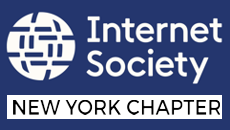Brooklyn Law Incubator & Policy Clinic Legal Hackathon
 On April 15, 2012, the Brooklyn Law Incubator & Policy Clinic (BLIP) hosted their first-ever Legal Hackathon. An all-day event, the Hackathon explorde how technology can improve the law and vice versa.
On April 15, 2012, the Brooklyn Law Incubator & Policy Clinic (BLIP) hosted their first-ever Legal Hackathon. An all-day event, the Hackathon explorde how technology can improve the law and vice versa.
Homepage: http://legalhackathon.johnrandall.com/wordpress/
Twitter : @BLIPClinic | #LegalHack
Questions : http://cyber.law.harvard.edu/questions/ Instance: NYCHack
Webcast: http://legalhackathon.blipclinic.org/live-stream/
KEYNOTES
Andrew Raziej
Tim Wu
Nina Paley
Nick Allard
Tim Hwang
PANELS
Hacking the Act: Why Do SOPA and PIPA Matter? Speakers: Lon Jacobs (News Corp), Derek Bambauer (BLS Professor), Robert Levine (Journalist/Author), and Amyt Eckstein (Moses & Singer)
Government 2.0: A Primer on Crowdsourced Policymaking and Fostering Civic Engagement Through Technology.
Speakers: Art Chang (Tipping Point), Sherwin Siy (Public Knowledge), John Bergmayer (Public Knowledge)
Plus Andrew McLaughin (Tumblr), Tim Wu (FTC), Nina Paley (Question Copyright), Tim Hwang (Robot Robot and Hwang), and Jonathan Askin (BLS Professor and director of the BLIP Clinic)
HACK THE ACT
A week-long competition beginning the day of the Hackathon, interested teams will tackle a discreet issue of IP policy and collaboratively propose a new policy reform through online collaboration tool Docracy.
WORKSHOPS
Docracy is challenging participants to use their service to translate a legalese agreement into plain English using their service.
PriView is hacking an assessment standard to help people better understand the privacy policies they deal with every day.
Wikipedia will discuss the role of crowdsourcing in legal research
WhyNot is brainstorming how to create a platform that will crowdsource the next Mayor of NYC.
The Calyx Institute is challenging participants to hack a model privacy policy for Internet service providers.
Creative Rights for Creative Children (CREATE) is hacking a new IP curriculum for students that properly accounts for creative privileges like fair use.



 Kevin Goldberg reports on the ongoing case in which webcaster Live365 is challenging the constitutionality of the Copyright Royalty Board (CRB), and with it the recently confirmed statutory webcasting rates.
Kevin Goldberg reports on the ongoing case in which webcaster Live365 is challenging the constitutionality of the Copyright Royalty Board (CRB), and with it the recently confirmed statutory webcasting rates.

Reply